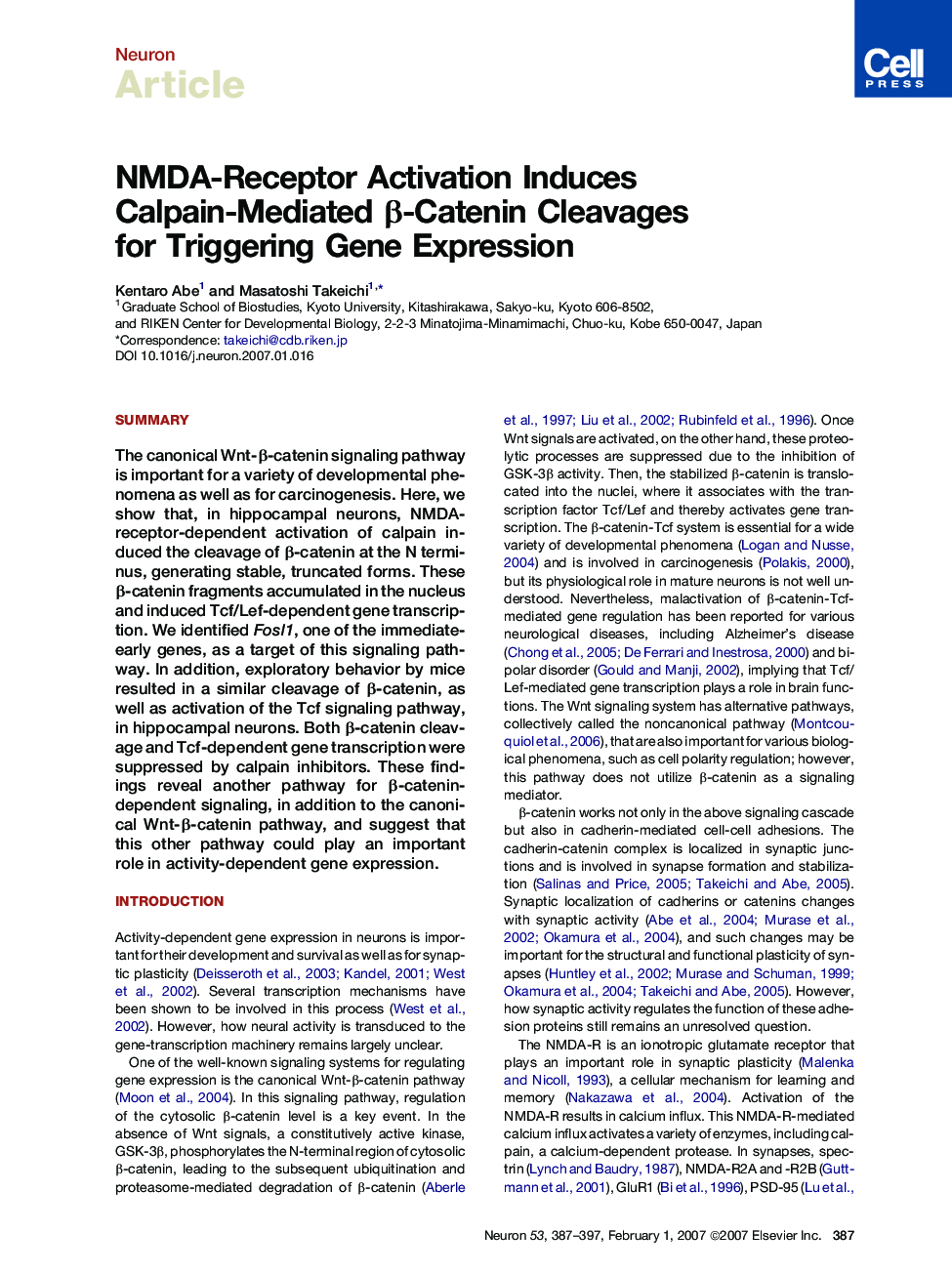| Article ID | Journal | Published Year | Pages | File Type |
|---|---|---|---|---|
| 4322968 | Neuron | 2007 | 11 Pages |
SummaryThe canonical Wnt-β-catenin signaling pathway is important for a variety of developmental phenomena as well as for carcinogenesis. Here, we show that, in hippocampal neurons, NMDA-receptor-dependent activation of calpain induced the cleavage of β-catenin at the N terminus, generating stable, truncated forms. These β-catenin fragments accumulated in the nucleus and induced Tcf/Lef-dependent gene transcription. We identified Fosl1, one of the immediate-early genes, as a target of this signaling pathway. In addition, exploratory behavior by mice resulted in a similar cleavage of β-catenin, as well as activation of the Tcf signaling pathway, in hippocampal neurons. Both β-catenin cleavage and Tcf-dependent gene transcription were suppressed by calpain inhibitors. These findings reveal another pathway for β-catenin-dependent signaling, in addition to the canonical Wnt-β-catenin pathway, and suggest that this other pathway could play an important role in activity-dependent gene expression.
